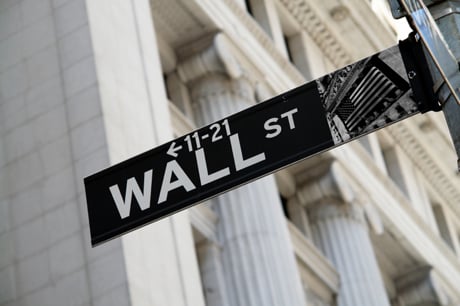New York City job losses in the Great Recession were far fewer than economists' dire predictions, and Wall Street profits last year soared to record levels on the back of near-zero interest rates and federal bailouts.
New York City job losses in the Great Recession were far fewer than economists' dire predictions, and Wall Street profits last year soared to record levels on the back of near-zero interest rates and federal bailouts. But by one measure — securities industry wages and salaries — 2009 was the darkest year in modern history, including the Great Depression, according to an analysis of new federal data by the Independent Budget Office.
Real average annual wages in the city's securities industry plummeted 21.5% to $311,279 in 2009 from 2008, a blog posting Tuesday by IBO Senior Economist David Belkin shows. Over a span of two years, the wages fell 24.6%.
The steep decline was primarily caused by the security industry's “crack-up in 2008,” Mr. Belkin wrote. Firms posted record losses, revenues were sliced in half and the year-end bonus pool — which gets recorded in the first quarter of 2009 — shrunk by nearly 40%.
Also, Wall Street revenues did not keep up with surging profits, Mr. Belkin wrote, leading to continued shedding of jobs throughout 2009. New York's securities industry lost 18,400 jobs in 2009, dragging salaries down for those who remained, with non-bonus baseline wages declining by 7.4 % in 2009.
By comparison, securities industry wages dropped by 10.1% in the post-9/11 recession. And before that, there were only three occasions since 1929 when they fell by at least 10% in a year. The highest previous decline was in 1947, when trading controls may have contributed to an 18% drop in securities industry wages, Mr. Belkin wrote.
Aggregate Wall Street wages — which reflect the combined effect of layoffs and wage declines — also declined in an unprecedented fashion, by 29.4%, or an estimated $21.4 billion.
Despite the record decline and Wall Street's general volatility, wages grew in the securities industry between 1990 and 2009 by 5.4%. By contrast, wage growth outside of the city's finance industry was only 1.6% over the same period. Mr. Belkin wrote that this difference shows “the challenge New York City could face adjusting to a securities industry that is unable to return to the kind of breakneck earnings growth it exhibited during the last 20 years — spectacular crashes and all.”
Daniel Massey is a reporter with Crain's New York Business, a sister publication of Pensions & Investments.







